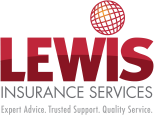How do you balance the costs of insurance with the risks to your business?
As a business owner, one of your biggest priorities is to manage and reduce the risks, including financial risks faced by your company. These risks can include boarder closures, lockdowns, new competitors in your market space, health and safety risks at your warehouse, data breaches/hacking, and so on. There are many ways to mitigate these risks, one of the strategies you have available is transferring your biggest financial risks by taking out insurance.
Business owners need to balance the likelihood of these risks against the cost of insurance. It can be likened to a risk vs reward scenario – for example, you could be prepared to face the risk of your carport being damaged, however you probably won’t take the same risk of your building burning down. If you decide to forgo insurance, then you must believe that this risk is low and balance is tipped in favour of the reward – which is saving the money you would have spent on the insurance premium.
However, if your building burns down and you lose all your plant & equipment, machinery and stock, the loss will greatly outweigh any premiums you saved by not having property insurance It all comes down to the balance between risks and rewards, which is why you should always opt to tip the balance in your favour by having the right insurances in place.
If you are not convinced that insurance can tip the balance in your favour, let’s look at two policies you must have (regardless of your thoughts on insurance) and other policies that can help tip the balance back in your direction.
Insurances you really should have as a business owner
Worker’s Compensation: If you employ staff, then you must have Worker’s Compensation Insurance. This is a legal requirement, and one that is there to not only protect your staff, but also yourself. This insurance covers your workers in cases of work-related accidents and pays both ongoing wages and lump sum amounts in the event of permanent disability.
Third party personal injury insurance for cars, utes and trucks: If your business owns cars, utes or trucks, then you are legally required to have third party personal injury insurance. This covers the costs incurred by third parties (being people who are not your family and other businesses) if your vehicle is involved in an accident. Comprehensive insurance or Third-Party Property damage covers are not mandatory, but should be considered.
Insurances to tip the risk – reward balance in your favour
Public Liability: Covers third party claims of personal injury or property damage as a result of your business activities at your workplace or customers premises.
Product Liability: Covers third party (being people who are not your family and other businesses) claims of personal injury or property damage as a result of products sold by your business (whether as a manufacturer, retailer or reseller).
Property Insurance: Covers damage from events such as fire, storm, wind, hail, lightening and theft to your buildings, plant & equipment and stock. It can also extend to loss of business income following the damage.
Professional Indemnity: Provides protection against actual or alleged unprofessional advice, which has caused or resulted in financial loss to third parties. Professional advice is very broad and can be advice incidental to a product sale, as well as from an engineer or allied health worker.
Cyber Crimes: Covers losses incurred by you or the business and damage you cause to third parties, such as passing on malware, fraudulent payments, phishing, ransomware and so on.
Only you can fully understand the cost in time, money and reputation that can occur if your business is faced with significant loss. So, if you want to ensure optimal balance between cost and risk, why not review your insurance cover and requirements with a specialist?
To review your insurance policies for your business, contact Lewis Insurance Services on 07 3217 9015 or send us an email by clicking here.
This article was published by our AFSL Licensee, Insurance Advisernet Australia P/L, www.insuranceadviser.net
Disclaimer:
This information and any accompanying material does not consider your personal circumstances as it is of a general nature only. You should not act on the information provided without first obtaining professional financial advice specific to your circumstances and considering the Product Disclosure Statement.

